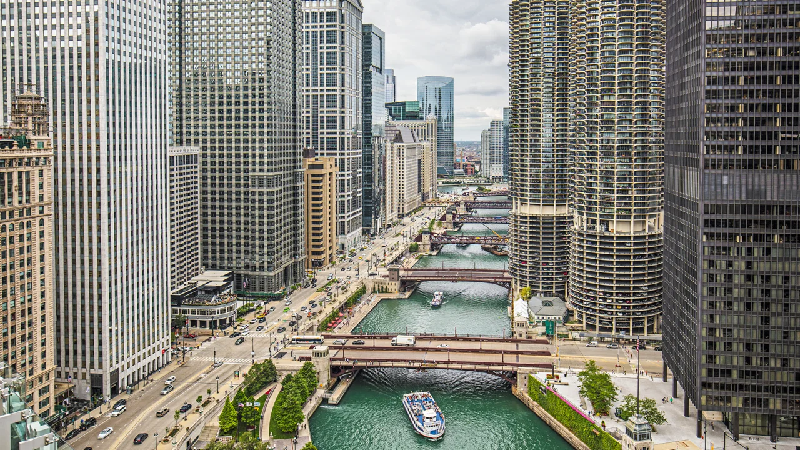In Short: Climate change is expected to make certain regions uninhabitable for humans due to extreme heat. These areas, primarily in the Middle East and parts of Asia, are projected to experience heatwaves with temperatures exceeding the threshold of human survivability. Rising global temperatures and increasing frequency of heatwaves pose significant challenges to vulnerable communities, urging the need for immediate and substantial climate action to mitigate these impacts and protect the most vulnerable populations.
In Detail : Heat waves have always been part of summer, but the familiar short periods of oppressive conditions have grown into weeks to months of sweltering heat. Research has shown that heat waves have become longer, hotter and more frequent over the last half a century because of human-induced climate change.
The 2021 Pacific Northwest heat dome, the Central Plains’ summer from hell the following year and this year’s Southwest sizzler are the most familiar recent examples in this country. But extreme heat has touched every continent over the last few years: Temperatures have regularly exceeded 122 degrees (50 Celsius) across the Asian subcontinent, and London’s thermometers reached 104 (40 C) for the first time last year, much earlier than climate models predicted.
But will such extended periods of heat and humidity come to regularly test the limits of human tolerance in places where much of the world’s population lives? It could happen sooner than we think.
We can study this question using the wet-bulb temperature, which combines the influence of heat and humidity on the human body. It denotes the temperature to which a parcel of air would cool by evaporating water into the environment, analogous to the cooling effect of sweat evaporating from skin. Scientists previously theorized that a wet-bulb temperature of 95 degrees — equivalent to an air temperature of 95 at 100% relative humidity — was the highest at which humans could cool themselves without the aid of fans or air conditioning. But lab testing of young, healthy, non-heat-acclimated people at Pennsylvania State University indicated that the wet-bulb limit was closer to 88.
Using this lower threshold based on actual experimental data, I and other scientists at Penn State and Purdue University examined when and where these conditions would appear in future climates using the latest models.
Unfortunately, the hot spots for exceeding this wet-bulb temperature threshold include some of the most populous parts of the world: the Indus River Valley in India and Pakistan, eastern Asia, the Middle East and sub-Saharan Africa. These regions comprise many low- to middle-income countries with vulnerable populations that will bear the brunt of climate change even though they contributed relatively little to its causes.
If global warming, currently at 1.2 degrees C (2.2 F) above the preindustrial baseline, is kept to 1.5 C (2.7 F), the extent and duration of temperatures exceeding the threshold can be limited. At 3 C (5.4 F) of warming, however, the duration of exposure in the world’s hot spots begins to increase exponentially, and physiologically intolerable conditions also begin to appear in the Americas.
Breaking the wet-bulb temperature threshold once, it’s worth noting, does not inherently make a place “too hot for humans.” Chicago, for example, would experience an average of one hour a year above the threshold at 2 degrees of warming, but one has to be exposed to these conditions for six continuous hours without taking precautions to reach dangerous core temperatures.
On the other hand, at the same 2 degrees of warming, the city of Hudaydah, Yemen, with a population of about 700,000, will experience an average of 340 hours a year of physiologically intolerable heat and humidity, putting the entire population at increased risk of dying. Divided into six-hour increments, that’s equivalent to 56 days a year of these extreme conditions.
Other populous global hot spots at 2 degrees of warming would include Aden, Yemen, with about 34 days a year of such conditions; Dammam and Jeddah, Saudi Arabia, with 37 and eight days, respectively; Bandar Abbas and Ahvaz, Iran, with 29 and three; Lahore, Pakistan, with 24; Dubai, with 20; and Delhi and Kolkata, India, with six and five.
Even in our current climate, extreme heat is already associated with dire health consequences. A Midwestern heat wave killed 700 people in Chicago in 1995. More than 70,000 died in Europe in the summer of 2003, and in 2010, 55,000 perished due to heat in Russia. More recently, an estimated 1,400 died across Oregon, Washington and British Columbia during the 2021 heat dome, and about 60,000 lost their lives due to extreme heat across Western Europe last year.
Thousands more have probably lost their lives in the heat waves that have afflicted the Global South, where the lack of public health capacity and reporting obscures the toll. Vulnerable populations die not only of heatstroke but also of complications related to cardiovascular, respiratory and renal illnesses.
The results of our study suggest that we need to prepare for, adapt to and mitigate extreme heat right now.
How do we put the brakes on the worst consequences of extreme heat? During these ever-worsening summer heat waves, we can prevent heat-related illnesses by opening cooling centers, monitoring vulnerable communities and shifting high-exertion activities to cooler parts of the day. To better prepare for future heat waves, we should also invest in adaptation and mitigation measures to deal with the warming that past emissions have already baked into our future climate.
Ultimately, a global effort to reduce the use of fossil fuels and bring net carbon emissions to zero as quickly as possible is the only way to avoid intolerable conditions for billions.

